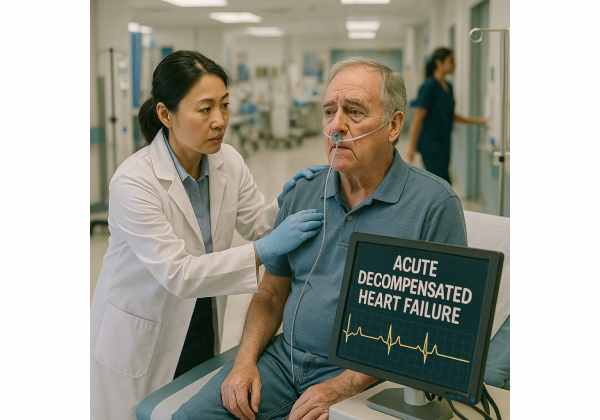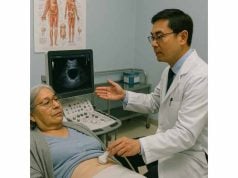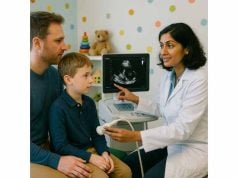
Acute decompensated heart failure (ADHF) is a critical medical condition marked by the sudden or gradual worsening of signs and symptoms of heart failure. This life-threatening syndrome typically requires urgent hospital care and may affect people with previously diagnosed chronic heart failure or appear as a first-time event. Understanding ADHF—its underlying causes, recognizable symptoms, risk factors, diagnostic strategies, and contemporary treatment options—is essential for prompt intervention, optimal outcomes, and ongoing prevention of further cardiac deterioration.
Table of Contents
- Acute Decompensated Heart Failure Overview
- Underlying Causes and Contributing Risk Factors
- Recognizing Signs and Diagnostic Steps
- Current Approaches to Treatment and Management
- Frequently Asked Questions
Acute Decompensated Heart Failure Overview
Acute decompensated heart failure represents a sudden decline in the heart’s ability to pump blood efficiently, leading to a rapid accumulation of fluid in the lungs, abdomen, or extremities. Unlike chronic heart failure, which progresses slowly, ADHF can develop over hours or days, and its hallmark is severe congestion and impaired organ perfusion.
Key points to understand about ADHF:
- It is a major cause of emergency hospital admissions in adults, particularly the elderly.
- Acute decompensation often occurs in patients with a known history of heart failure, but it can also be the first sign of undiagnosed cardiac dysfunction.
- The underlying problem is a mismatch between the heart’s pumping capacity and the body’s needs, often triggered by factors like high blood pressure, heart attacks, arrhythmias, or medication noncompliance.
The main goals of care in ADHF:
- Rapidly relieve symptoms of congestion and shortness of breath.
- Restore organ perfusion and prevent further complications.
- Identify and address the underlying trigger for the decompensation.
Living with chronic heart failure does not guarantee a steady course—acute exacerbations are both unpredictable and dangerous. Recognizing the signs of decompensation and seeking immediate care can be lifesaving.
Underlying Causes and Contributing Risk Factors
Understanding what causes acute decompensated heart failure and knowing who is at risk can guide prevention, early detection, and targeted management strategies.
What Triggers Acute Decompensation in Heart Failure?
While chronic heart failure can remain stable with medical therapy and lifestyle changes, certain stressors can push the body into acute decompensation. Common causes and triggers include:
- Noncompliance with medications or dietary restrictions:
- Skipping diuretics, blood pressure medications, or heart failure therapies.
- Eating excessive salt or fluids.
- New or worsening cardiac events:
- Acute myocardial infarction (heart attack).
- New-onset or uncontrolled arrhythmias (such as atrial fibrillation).
- Rapid or severe hypertension.
- Sudden progression of valvular heart disease.
- Infections or other medical illnesses:
- Pneumonia, urinary tract infections, or sepsis.
- Uncontrolled diabetes or thyroid dysfunction.
- Pulmonary embolism (blood clot in the lung).
- Other precipitating factors:
- Kidney failure or worsening renal function.
- Anemia.
- Excessive alcohol intake or substance use.
- Major emotional or physical stress.
Core Risk Factors for Developing ADHF
Acute decompensated heart failure most often affects individuals with underlying chronic heart failure, but anyone with impaired cardiac function is at risk. Major risk factors include:
- Existing diagnosis of chronic heart failure (reduced or preserved ejection fraction)
- Coronary artery disease or prior heart attack
- Hypertension (high blood pressure)
- Diabetes mellitus
- Valvular heart disease
- Chronic kidney disease
- Advanced age
- Obesity and sedentary lifestyle
- Alcohol or illicit drug abuse
- Family history of heart disease
- Uncontrolled atrial fibrillation or other arrhythmias
Some acute cases, known as “de novo” ADHF, may occur without any prior heart failure diagnosis—commonly in the setting of sudden heart attacks, severe valve dysfunction, or hypertensive emergencies.
Pathophysiological Changes in Acute Decompensated Heart Failure
The process of acute decompensation is complex and involves:
- Increased pressure in the heart and lungs: The heart fails to pump blood forward, leading to congestion and fluid backup.
- Neurohormonal activation: The body releases hormones (like adrenaline and angiotensin) that make the heart work harder, constrict blood vessels, and worsen fluid retention.
- Reduced perfusion to vital organs: The kidneys, liver, and brain can be compromised by low cardiac output.
- Progressive fluid overload: Swelling, shortness of breath, and weight gain occur as fluid accumulates in tissues.
Practical Preventive Advice
- Take all prescribed medications on time.
- Weigh yourself daily—report any sudden gain (usually >2–3 lbs in 24–48 hours) to your doctor.
- Follow a low-sodium diet and restrict fluid intake if recommended.
- Learn and watch for early warning signs: increasing breathlessness, swelling, rapid heartbeat, fatigue, or cough.
- Attend regular checkups and follow up on any changes in your health.
Recognizing Signs and Diagnostic Steps
Early identification and prompt evaluation of acute decompensated heart failure symptoms are vital for successful management and improved outcomes. Here’s how to recognize and diagnose ADHF:
Common Signs and Symptoms of ADHF
- Severe shortness of breath (dyspnea): At rest or with minimal activity, or waking up suddenly at night gasping for air (paroxysmal nocturnal dyspnea).
- Rapid weight gain: Due to fluid accumulation.
- Swelling (edema): Legs, ankles, feet, abdomen (ascites), or even around the eyes.
- Persistent cough or wheezing: Sometimes with frothy or pink-tinged sputum.
- Orthopnea: Needing to sleep propped up on multiple pillows.
- Fatigue or weakness: Profound and unrelieved by rest.
- Palpitations or irregular heartbeats
- Reduced urine output
- Confusion or mental status changes: Especially in elderly patients.
- Cold, clammy skin or bluish color (cyanosis): In severe cases, indicating poor oxygenation.
When to Seek Emergency Care
Call emergency services if you experience:
- Sudden severe shortness of breath or chest pain
- Severe confusion, fainting, or loss of consciousness
- Frothy or blood-tinged sputum
- Rapid, unexplained swelling or rapid heartbeat
Diagnostic Evaluation of Acute Decompensated Heart Failure
- Clinical assessment:
- Detailed history (including recent changes, medication use, salt and fluid intake).
- Physical examination focusing on lungs, heart sounds, swelling, jugular venous pressure.
- Laboratory studies:
- Blood tests: BNP or NT-proBNP (markers of heart failure), kidney function, liver enzymes, electrolytes, cardiac enzymes (if heart attack suspected).
- Complete blood count: To assess for anemia or infection.
- Thyroid function tests: If thyroid disease is suspected.
- Imaging and cardiac testing:
- Chest X-ray: Shows lung congestion, heart size, and fluid in the lungs or pleural spaces.
- Electrocardiogram (ECG): Identifies arrhythmias, prior heart attacks, ischemia, or other abnormalities.
- Echocardiogram (heart ultrasound): Evaluates ejection fraction, wall motion, valve function, and potential structural causes.
- Ultrasound of legs or abdomen: To evaluate for clots or other causes of swelling.
- Hemodynamic monitoring (in severe cases):
- Right heart catheterization: For precise measurement of pressures, especially in cases resistant to initial therapy.
Practical Advice for Patients and Caregivers
- Keep a symptom diary and bring it to every appointment.
- Be proactive about new or worsening symptoms.
- Make sure you understand your “zone” management plan (green = stable, yellow = caution, red = emergency).
- Don’t hesitate to ask your provider about how to recognize serious changes.
Current Approaches to Treatment and Management
Treating acute decompensated heart failure is a dynamic, stepwise process focused on stabilizing the patient, relieving congestion, improving heart function, and addressing the underlying cause. Here’s a comprehensive look at modern management:
Immediate Stabilization
- Hospital admission: Most patients require monitoring and treatment in the emergency room, observation unit, or intensive care.
- Oxygen therapy: Provided if oxygen levels are low.
- Monitoring: Continuous ECG, blood pressure, oxygen saturation, and urine output.
- IV access: For medication administration and possible fluid removal.
Core Medical Therapies
1. Diuretics:
- IV loop diuretics (such as furosemide, bumetanide) to rapidly remove excess fluid.
- May require high doses or combination diuretics if resistant.
2. Vasodilators:
- IV nitroglycerin, nitroprusside, or nesiritide to reduce cardiac workload and relieve symptoms in selected patients with high blood pressure.
3. Inotropes and vasopressors (for low-output states):
- Medications such as dobutamine or milrinone to improve heart contraction in severe cases with shock or very low blood pressure.
4. Treating the trigger:
- Heart attack: Urgent reperfusion therapy (PCI, thrombolysis).
- Arrhythmias: Rate or rhythm control.
- Infection: Prompt antibiotics.
- Hypertension: Careful blood pressure reduction.
5. Noninvasive or invasive ventilatory support:
- CPAP/BiPAP for respiratory distress.
- Mechanical ventilation if severe respiratory failure develops.
Advanced and Supportive Therapies
- Ultrafiltration: Mechanical fluid removal for patients with diuretic-resistant volume overload.
- Mechanical circulatory support: Devices such as intra-aortic balloon pump, ventricular assist devices (VADs), or extracorporeal membrane oxygenation (ECMO) in refractory or end-stage cases.
- Renal replacement therapy: Dialysis for patients with kidney failure and fluid overload.
Discharge Planning and Long-Term Management
- Optimization of oral medications:
- Adjust ACE inhibitors, beta-blockers, aldosterone antagonists, angiotensin receptor-neprilysin inhibitors (ARNIs), SGLT2 inhibitors as tolerated.
- Education:
- Emphasize medication adherence, self-monitoring, diet, fluid restriction, exercise, and when to seek help.
- Cardiac rehabilitation:
- A structured program of exercise, education, and support for recovery.
- Multidisciplinary care:
- Collaboration between cardiologists, primary care, pharmacists, dietitians, and nurses for optimal outcomes.
- Addressing comorbidities:
- Control of hypertension, diabetes, atrial fibrillation, sleep apnea, and kidney disease.
Practical Tips for Ongoing Care
- Set medication reminders and keep refills up to date.
- Limit sodium intake (usually <2,000 mg/day) and monitor daily fluid intake if instructed.
- Report rapid weight gain, swelling, or increasing shortness of breath promptly.
- Stay active within your limits—gentle exercise can help, but rest when needed.
- Seek social support—living with heart failure is challenging; connect with others, whether family, friends, or support groups.
Frequently Asked Questions
What is acute decompensated heart failure?
Acute decompensated heart failure is a sudden or severe worsening of heart failure symptoms, often causing fluid buildup in the lungs and other tissues, requiring urgent hospital treatment.
What causes acute decompensated heart failure?
Triggers include missed medications, excessive salt or fluid intake, heart attacks, arrhythmias, infections, kidney problems, or uncontrolled high blood pressure.
What are the warning signs of acute decompensated heart failure?
Symptoms include rapid weight gain, swelling, severe shortness of breath (especially at rest or lying down), fatigue, and a persistent cough.
How is acute decompensated heart failure diagnosed?
Diagnosis is based on physical exam, blood tests (including BNP), chest X-ray, echocardiogram, and sometimes ECG or heart catheterization.
What are the main treatments for acute decompensated heart failure?
Treatment involves IV diuretics to remove fluid, medications to improve heart function, oxygen or ventilatory support, and addressing the underlying cause.
Can acute decompensated heart failure be prevented?
Prevention relies on taking prescribed medications, limiting salt and fluid, monitoring weight daily, avoiding missed doses, and recognizing early warning signs.
What is the outlook after an episode of acute decompensated heart failure?
Outlook depends on age, cause, severity, and how well underlying conditions are managed. Ongoing treatment and lifestyle changes are critical to reduce recurrence.
Disclaimer:
This article is for educational purposes only and is not a substitute for professional medical advice, diagnosis, or treatment. If you or someone you know has signs of acute decompensated heart failure, seek immediate medical attention. Always consult your healthcare provider regarding your specific condition and treatment options.
If this resource was helpful, please consider sharing it on Facebook, X (formerly Twitter), or your preferred social media platform. Your support helps us continue to provide high-quality health information and reach more people in need. Follow us for more updates and practical advice on managing heart conditions!










